Rouhani’s cabinet reflects a dramatic shift in the balance of power. After one month in office, the top officials are now outlining the policies of Rouhani’s administration.
The majority of the ministers -- 15 of 18 who were immediately confirmed -- were ministers or senior bureaucrats during Ali Akbar Hashemi Rafsanjani’s presidency between 1989 and 1997. They are largely centrists known for pragmatic outlooks. Some of Rouhani’s ministers strongly criticized government corruption or tough security policies during Mahmoud Ahmadinejad’s presidency between 2005 and 2013.
Rouhani’s cabinet contrasts sharply with his predecessor’s. Many of former President Ahmadinejad’s ministers were former Revolutionary Guards members or lacked relevant experience for their positions. The following are profiles of eight leading cabinet officials, including remarks on key issues.
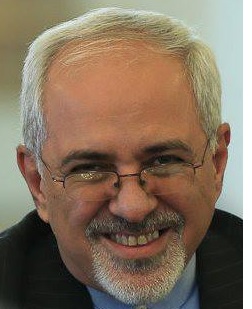 Born in 1960, Zarif was Iran’s ambassador to the United Nations from 2002 to 2007. He is widely regarded as one of Iran’s most savvy diplomats. Zarif served as deputy U.N. ambassador from 1989 to 1992 and then as deputy foreign minister for legal and international affairs until 2002.
Born in 1960, Zarif was Iran’s ambassador to the United Nations from 2002 to 2007. He is widely regarded as one of Iran’s most savvy diplomats. Zarif served as deputy U.N. ambassador from 1989 to 1992 and then as deputy foreign minister for legal and international affairs until 2002.Zarif has been involved in both formal and informal talks with the United States. In 2001, he was Iran’s emissary to U.N. talks on the future of Afghanistan after the Taliban’s ouster. U.S. envoy James Dobbins credited Zarif with preventing the collapse of the conference due to last-minute demands by the Northern Alliance to control the new government. As an ambassador, Zarif attempted to improve relations with the West, including the United States.
Zarif speaks English with an American accent after receiving two degrees from San Francisco State University and a doctorate in international relations from the University of Denver.
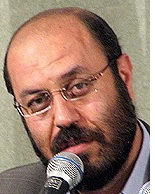 Born in 1957, Dehqan is a former Revolutionary Guards commander and deputy defense minister. He joined the Guards shortly after the 1979 revolution and became commander of the Tehran unit in 1980. Dehqan reportedly commanded contingents in Lebanon and Syria from 1982 to 1984. He was appointed commander of the Revolutionary Guards air force in 1990 and became deputy chief of the Join Staff in 1992.
Born in 1957, Dehqan is a former Revolutionary Guards commander and deputy defense minister. He joined the Guards shortly after the 1979 revolution and became commander of the Tehran unit in 1980. Dehqan reportedly commanded contingents in Lebanon and Syria from 1982 to 1984. He was appointed commander of the Revolutionary Guards air force in 1990 and became deputy chief of the Join Staff in 1992.Former President Mahmoud Ahmadinejad made Dehqan the head of the Martyr’s Foundation in 2005. But Dehqan was replaced after Ahmadinejad’s first term. He became chair of the Expediency Council’s Political, Defense and Security commission in April 2010. Dehqan reportedly has a doctorate in public administration from the University of Tehran.
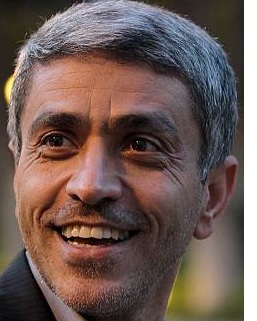 Born around 1960, Dr. Tayebnia is a professor economics at the University of Tehran. He previously served as Economic Commission secretary from 1997 to 2000 and then deputy head of the Presidential Office for Planning under former President Khatami until 2005. He returned to his position as Economic Commission secretary and held it until 2007. Tayebnia, an expert in curbing inflation, has reportedly favored a national income tax to reduce government dependence on oil revenue.
Born around 1960, Dr. Tayebnia is a professor economics at the University of Tehran. He previously served as Economic Commission secretary from 1997 to 2000 and then deputy head of the Presidential Office for Planning under former President Khatami until 2005. He returned to his position as Economic Commission secretary and held it until 2007. Tayebnia, an expert in curbing inflation, has reportedly favored a national income tax to reduce government dependence on oil revenue. 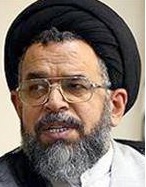 Born in 1954, Alavi is a former deputy defense minister. The mid-ranking cleric served in parliament from 1981 to 1988 and from 1992 to 2000. Supreme Leader Ayatollah Ali Khamenei appointed him to head the political ideology office of Iran’s army in 2000. He remained in that position until August 2009.
Born in 1954, Alavi is a former deputy defense minister. The mid-ranking cleric served in parliament from 1981 to 1988 and from 1992 to 2000. Supreme Leader Ayatollah Ali Khamenei appointed him to head the political ideology office of Iran’s army in 2000. He remained in that position until August 2009.The Guardian Council reportedly disqualified Alavi from running for parliament in 2012 for “lack of adherence to Islam.” He has spoken out against the securitized atmosphere in Iran. Alavi is currently a member of the Assembly of Experts, the powerful body charged with monitoring the supreme leader and selecting his successor.
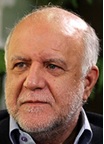 Born in 1953, Zanganeh was oil minister under reformist President Mohammad Khatami from 1997 to 2005. He reportedly helped attract billions of dollars in foreign investment to Iran’s oil and gas industries. Zanganeh expanded the petrochemical and gas sectors. He promoted the use of gas domestically, allowing Iran to export more oil.
Born in 1953, Zanganeh was oil minister under reformist President Mohammad Khatami from 1997 to 2005. He reportedly helped attract billions of dollars in foreign investment to Iran’s oil and gas industries. Zanganeh expanded the petrochemical and gas sectors. He promoted the use of gas domestically, allowing Iran to export more oil.Zanganeh earned a graduate degree in civil engineering from the University of Tehran in 1977. He went on to serve as agriculture minister from 1983 to 1988 and energy minister from 1988 to 1997. Zanganeh intermittently taught management and economics classes at multiple universities.
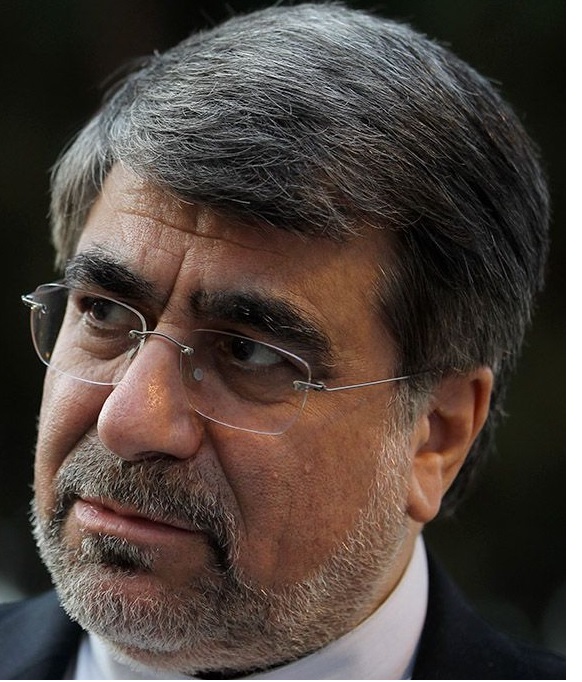 Born around 1949, Ali Jannati is a former ambassador to Kuwait and former governor of Khuzestan province. He is the son of Ayatollah Ahmad Jannati, a hardline cleric who chairs the powerful Guardian Council. But the younger Jannati is reportedly aligned with former President Rafsanjani’s centrist camp.
Born around 1949, Ali Jannati is a former ambassador to Kuwait and former governor of Khuzestan province. He is the son of Ayatollah Ahmad Jannati, a hardline cleric who chairs the powerful Guardian Council. But the younger Jannati is reportedly aligned with former President Rafsanjani’s centrist camp.Jannati ran Rafsanjani’s office in 1988 while he was parliamentary speaker. Jannnati was appointed governor of Khorosan province during Rafsanjani’s first presidential term between 1989 and 1993. Jannati served as ambassador to Kuwait from 1998 to 2005. And he was appointed deputy interior minister for political affairs in 2005 under Ahmadinejad. But he was reportedly ousted for his close connections to Rafsanjani in 2006.
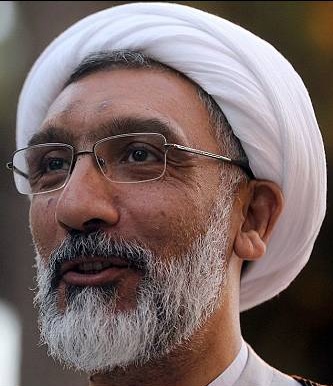 Born in the holy city of Qom around 1960, Pourmohammadi is a former interior minister. The conservative cleric earned a degree in Islamic law equivalent to a doctorate before becoming the Revolutionary Court’s prosecutor in 1979. He left the position in 1986 to serve as deputy intelligence minister.
Born in the holy city of Qom around 1960, Pourmohammadi is a former interior minister. The conservative cleric earned a degree in Islamic law equivalent to a doctorate before becoming the Revolutionary Court’s prosecutor in 1979. He left the position in 1986 to serve as deputy intelligence minister.Human Rights Watch and other organizations have alleged that Pourmohammadi played a role in the 1988 prison massacres and the 1998 chain murders of dissident intellectuals. But he has denied involvement. Pourmohammadi remained deputy intelligence minister until 1999.
In 2005, former President Mahmoud Ahmadinejad appointed Pourmohammadi interior minister. He held the position for three years and was then named head of the National Inspection Organization. He played a major role in uncovering a 3 billion rial ($120,000) embezzlement case connected to the Iran Insurance Company. Pourmohammadi was a vocal critic of Ahmadinejad’s economic reform plan, especially subsidy removal.
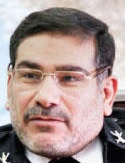 Born in 1955, Shamkhani served as defense minister under reformist President Mohammad Khatami between 1997 and 2005. Shamkhani is an Arab from Ahvaz near the Iraqi border who commanded the Revolutionary Guards Navy during the 1980-1988 war with Iraq. As Khatami’s defense minister, Shamkhani played a leading role in improving relations between Iran and Persian Gulf sheikhdoms. In 2004, Shamkhani received Saudi Arabia’s highest medal, the Order of Abdulaziz al Saud, from King Fahd for his efforts. Shamkhani directed the Iranian Armed Forces’ Center for Strategic Studies from 2005 until his appointment by Rouhani.
Born in 1955, Shamkhani served as defense minister under reformist President Mohammad Khatami between 1997 and 2005. Shamkhani is an Arab from Ahvaz near the Iraqi border who commanded the Revolutionary Guards Navy during the 1980-1988 war with Iraq. As Khatami’s defense minister, Shamkhani played a leading role in improving relations between Iran and Persian Gulf sheikhdoms. In 2004, Shamkhani received Saudi Arabia’s highest medal, the Order of Abdulaziz al Saud, from King Fahd for his efforts. Shamkhani directed the Iranian Armed Forces’ Center for Strategic Studies from 2005 until his appointment by Rouhani.
